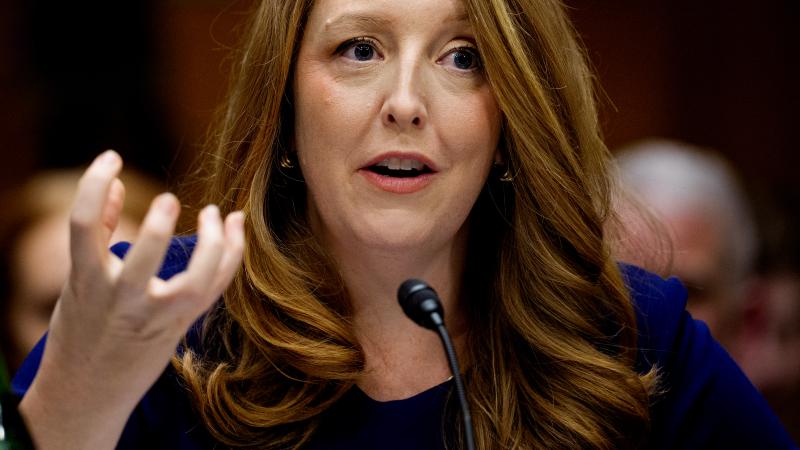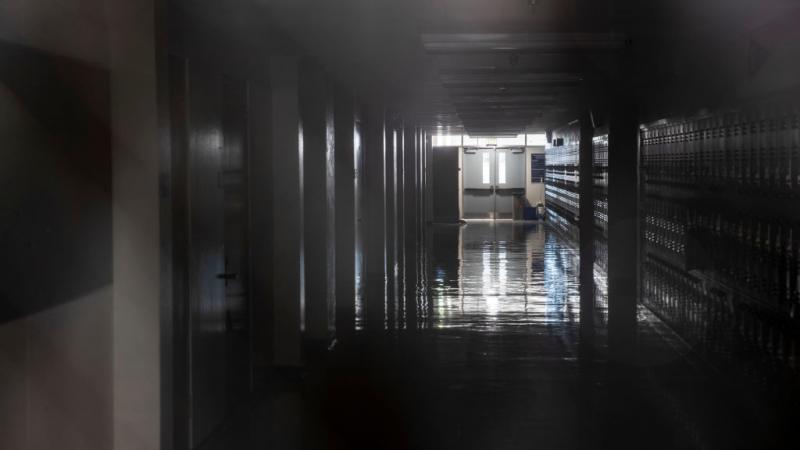As Biden border crisis grows, Florida congressman refiles bill to break ‘chain migration’
Rep. Greg Steube, R-Fla., has reintroduced his 2019 proposal to limit “chain migration” by restricting how family-based immigration visas to spouses and minor children of U.S. citizens and legal permanent residents are issued.
Rep. Greg Steube, R-Fla., has reintroduced his 2019 proposal to limit “chain migration” by restricting how family-based immigration visas to spouses and minor children of U.S. citizens and legal permanent residents are issued.
Steube’s Break The Chain Act was initially introduced as HR 1989 in 2019, but the measure failed to gain traction. His 2021 Break The Chain Act has not as yet been numbered.
“Chain migration is a serious problem in this country,” Steube said when he reintroduced the bill this week. “Under current law, hundreds of thousands of individuals immigrate to our country annually through immediate relative status. This bill would remove these immigration categories and make it so that all immigrants are on equal footing when it comes to applying for citizenship.”
Steube’s office reported over the last decade “an average of 120,268 immediate relative green cards were issued to parents of U.S. citizens annually – the largest of any immediate relative status category. (Steube’s bill) would address this influx. Parents in the U.S. under the program would not receive work authorization.”
The bill would rescind the F1, F2(B), F3 and F4 family-sponsored visa preference categories and the parent category, leaving only spouses and minor children eligible for immediate relative status under F2(A).
Applicants applying under the F2(A) category will be processed based on the age when their green card application was filed under Steube’s proposal, which would also create a “renewable, five-year term, nonimmigrant visa for parents of citizens that does not include work authorization.”
“This program would allow parents to join their adult children the United States given the child can provide health insurance to their parents throughout their duration in the U.S.,” he said. “I think this program will be extremely helpful to many families.”
The bill was sent to the U.S. House Judiciary Committee, which Steube sits on. It does not have any co-sponsors and a companion measure has not surfaced in the U.S. Senate. With Democrats controlling both chambers, the bill is not expected to pass.
Steube, however, insists the measure raises issues with chain migration that Congress must deal with sooner rather than later and underscores the failures of Democrats’ ineffectual response to the crisis at the U.S.-Mexico border.
In the wake of Biden assuming office, about 78,000 people tried to cross the U.S,-Mexico border illegally in January, more than twice the number in January 2020. The U.S. Customs and Border Protection (CBD) stopped over 178,000 illegal aliens, many of them being minors in last April alone. The surge continuing with as many as 4,000 illegal crossings a day, according to CBD.
A survey released Thursday by Rasmussen Reports shows 71% of Republicans, 63% of independents and 34% of Democrats think Biden isn’t doing enough to reduce illegal border crossings and visitor overstays, as do 34 percent of Democrats.
“While the Biden Administration recklessly opens up our southern border and overwhelms CBP (U.S. Customs & Border Protection), Congress must work towards common-sense immigration reforms that will end irresponsible policies, like chain migration,” Steube said in a statement.
The proposed Break The Chain Act not only will “create a level playing field for legal immigrants applying for citizenship,” he said, “but it will also help the federal government control the number of people we have entering our country each year.”
Steube served three terms in the Florida House from 2010-16 and two years in the Florida Senate before being elected to Congress in 2018 and winning a second term in 2020.
As a state senator in 2017, Steube sponsored a failed bill that would have made illegal immigration a third-degree felony under Florida law.
















